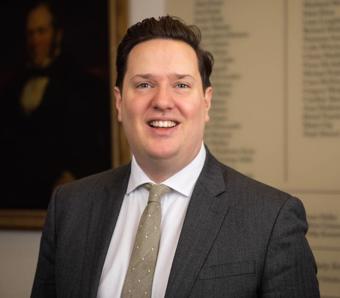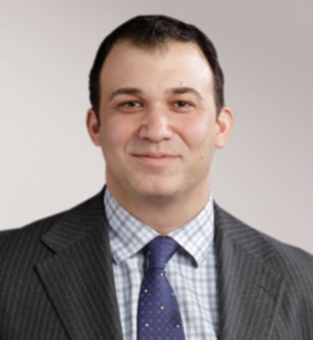Manchester Law Society Personal Injury Conference: A Summary…. by Karen Jackson, director of Roberts Jackson…
On the 11th November 2013, The Manchester Law Society held its Autumn Personal Injury Conference at the Hilton Hotel. The President of Manchester Law Society, Sucheet Amin welcomed over 100 delegates and I was introduced as the chair for day.
Rob Cummings, senior policy advisor at the ABI spoke first about the insurance industry’s view of the changes to the personal injury market over the past year. Rob spoke with great conviction in detail about the significant changes to the civil litigation framework which had been produced as a result of the Jackson Review and the reforms contained in LASPO.
Rob concluded his speech by saying that significant changes were under way and the civil litigation landscape would continue to evolve and the opportunity to make the system more efficient and more effective should not to be missed.
Matthew Stockwell, the president of APIL, gave his view on the changes to the civil litigation market but warned that caution was needed as it was impossible to see what was around the corner.
A short panel debate then took place. I invited Rob Cummings, Matthew Stockwell, Craig Budsworth and John Hyde of the Law Society Gazette to discuss some of the issues raised in the sessions, including the subject of inducements. The consensus was that inducements, such as cash or iPads offered by firms to clients, although not illegal, often gave the wrong impression of the profession, does not send the correct impression and should be banned.
Craig Budsworth, Manchester solicitor and chairman of MASS, gave his view on the future of RTAs and the need to change the perception of a compensation culture. He vocalised his opinion with the use of a number of newspaper cuttings and headlines which contributed to this perception. He said that the Government, insurers and lawyers needed to work together to find a solution that combats fraud whilst ensuring that genuine accident victims are not denied access to justice.
Offering the Law Society’s perspective on the changes to the PI landscape, Mark Stobbs, director of legal policy, said that there was an agenda to reduce claims and this was putting pressure on fees. He said that many firms had already responded to the challenges by looking at margins, their utilisation of IT and paralegals, although this has meant that fewer firms are taking on trainee solicitors and this would have an impact on the profession. He said the message he wanted to give to firms was to ensure that they offered a quality of service, through the quality of staff and processes.
The panel then debated many of the issues raised and were joined by Donald Fowler, managing director of Premex. The wide-ranging discussion included concerns about the quality of medical evidence offered by some expert witnesses, some of these offering reports for as little as £30. There was a general consensus that there should be some form of accreditation for experts.
Antony Townsend, chief executive of the Solicitors Regulation Authority began the afternoon’s conference by discussing the future challenges faced by all in the legal environment. Antony explained the SRA is committed to working with any legal body or business but warned that there were still lots of challenges ahead for solicitors in every area of law, not just PI.
Adam Sampson represented the legal ombudsman’s view and provided helpful hints on how to avoid complaints from clients regarding solicitors. He explained that the general public often feels intimidated by the legal profession and the advice they give. Adam advised all solicitors to consider the costs and the advice given at every stage of the legal process for the client and to ensure that the language used will ensure everyone will understand the advice. He explained that although the general public may state that they understand the advice given to them by solicitors, they often do not and this is why clients get upset because they are sometimes afraid to ask. So when giving advice make the advice simple with no legal jargon, he said.
Lesley Graves and Philip Grundy gave practical and effective advice on how to run a profitable PI business in the post LASPO world. Lesley gave insight into looking at a firm’s current WIP and how this will equate to workable revenue. Philip gave his advice on how to avoid the pitfalls of unnecessary court costs. His advice was that costs now should be considered at all times in the case and should no longer be an afterthought.
This led to the final debate of the day. I was joined on stage by Antony Townsend, Adam Sampson, Lesley Graves - managing director of Citadel Law, David Vine - business development manager at Allianz PLC, Christine Oxenburgh – partner at Freeth Cartwright, Michelle Garlick – partner at Weightmans LLP and Rupert Scrase – chairman of Sole Practitioners Group. Many issues were discussed including compliance, financial instability, professional indemnity insurance and the referral fee ban.
Christine Oxenburgh and Michelle Garlick both spoke at length about the different ABS structures and emphasised that ABS in itself was not a magical tool that will fix any law firm’s problems. Christine said: “you must decide first of all whether an ABS is even necessary for your business, do your homework first, put your house in order and then consider how to go about becoming one”.
Antony commented that in previous months there had been a back log in the process of law firms becoming an ABS. He said that the SRA has asked that the next time the process of consideration for the ABS structure comes before Parliament, that it is amended to make the process more streamlined; however he also confirmed that some firms that have applied to become an ABS realise during the process that they do not need to be an ABS and shortly after, decide to stop the process, which adds to the backlog of applications.










